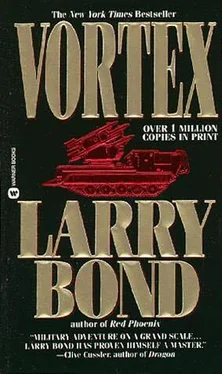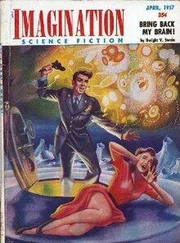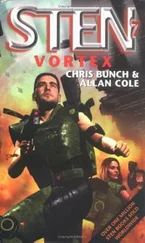“They blew those bastards clear off the road, Comrade. After that it was all broom and shovel work.”
Mares chuckled inside. Right now the war was going their way. Let the boy have his fun. The tough going would start soon enough. He leaned forward.
“Very well, Miguel. Get this mess cleaned up as soon as you can, then join up. We’ll need you for the victory parade when we reach Pretoria.”
The lieutenant laughed and moved off at a run.
Mares spoke into his microphone.
“Second Platoon, take the point. All units, move out.”
He studied the wrecked South African roadblock with contempt.
It would take more than that to stop Cuba’s advancing armies.
SADF HEADQUARTERS, PRETORIA
Commandant Willem Metje stared back and forth from the reports he held in his hand to the strategic map showing the northeastern Transvaal.
Something was wrong. Horribly wrong.
He’d expected the Cubans to launch a series of carefully planned diversionary attacks. Militarily, that only made common sense. After all, raids and other feints would tie down South African troops needed in
Namibia. Vega’s planners might also have hoped they could conceal the real axis of their attack. A successful raid could even do real damage, forcing South Africa to spend valuable time and resources repairing a vital radar station or supply depot.
But the Cubans seemed to be putting a lot of effort into their diversionary attacks. More effort than seemed either reasonable or even possible.
Metje moved closer to the map, consumed by a growing sense of panic.
Enemy contacts were represented by color coded pins. Yellow meant a simple sighting. Orange indicated skirmish-level combat-small-arms fire, nothing more. And red meant a determined attack, with heavy weapons or rockets.
A small tag attached to each pin showed the time of the contact.
Now, for the first time since the Cuban offensive began shortly after midnight, he was beginning to see a pattern emerging from all these “diversionary” contact reports-a damning and disastrous pattern. Although there were reports of enemy activity along all of South Africa’s borders, major enemy attacks were being reported in just two sectors-those containing the two major highways aimed at Pretoria and Johannesburg. Red pins were sprouting along those roads with frightening regularity.
To Metje’s suddenly very worried eyes, those two lines of red pins were beginning to look as though they were marching straight toward his nation’s administrative capital and industrial heartland. He glanced down at the sheaf of reports clutched in his hands. They all told much the same story:
-061513 Nov-EASTERN TRANSVAAL MILCOMContact lost with Komatipoort border post at 0610. No word from relief patrol dispatched 0625.”
-081513 Nov-NORTHERN TRANSVAAL MIL COM -Fragmentary call from SAP HQ in
Messina reports attack by hostile armored car units and unidentified aircraft. Report unconfirmed. Unable to reestablish contact with
Messina.” Below the text of this message, someone had scribbled, “Phone lines probably cut.”
He flipped from sheet to sheet. Each succeeding report showed enemy units pushing deeper into South African territory.
“Wommandant?”
Startled, Metje looked up into the somber face of one of his officers.
The man handed him two more telexed reports.
“I think you should see these, sir.”
“101513 Nov-NORTHERN TRANSVAAL MIL COM -Helicopter-borne infantry attacking
Wyllie’s Port. Infantry confirmed as Cuban, repeat, Cuban.”
” 10 1613 Nov-NORTHERN TRANSVAAL MIL COM -Louis Trichardt Air Base under heavy enemy air attack. Losses and runway status as yet unknown.”
“My God… ” Metje’s voice trailed away in shock and disbelief. More than eighty kilometers inside South Africa, Wyllie’s Poort was a narrow pass across the Soutpansberge -a chain of wooded mountains, ridges, and lichen-covered cliffs just north of Louis Trichardt and its military airfield. Two highway tunnels, each several hundred meters long, carried
National Route I through the mountains at this point. Whoever held the pass held the key to the whole northern Transvaal.
“I think General de Wet should know about this, don’t you, sir?”
What? Tell de Wet? But de Wet and the others were in another room, busy crowing over reports of rapid progress in Namibia. None of them were paying much attention to anything happening beyond the front lines outside Windhoek.
Metje struggled upward from his contemplation of complete and unmitigated failure.
“I’ll take care of these, Captain. Stick to your own knitting, if you please. Dismissed.”
Without saying another word, the younger officer stalked rigidly away-hurt, angry, and resentful.
Metje ignored him. He had problems of his own.
His body temperature seemed wildly variable. One minute he was shivering, chilled to the bone, and the next he was sweating profusely, convinced he was burning up. No matter how hard he tried to fit the pieces together into another, less threatening pattern, he kept coming face-to-face with a single, horrifying conclusion: Colonel Heerden had been right all along. The Cubans were attacking from the north and east driving hard for the undefended heart of the South African nation.
Metje could see that now. And in that realization he saw the certain end of his military career and all his political ambitions.
He ran a clammy hand over his face. It was so unfair. De Wet and the other generals would need a scapegoat, and he certainly filled the bill. Any court-martial would be swift and sure-able to reach only one conclusion and one sentence.
For an instant, just an instant, Metje was tempted to stay and play the farce through to its appointed end. Doing his duty up to the last possible moment was the only honorable course left open to him. But doing his duty would not mitigate his punishment.
Metje dropped the sheaf of contact reports on a nearby desk, turned on his heel, and left the room. His staff watched him go without saying anything.
They probably imagined he was on his way to report to de Wet.
Good. That would buy him time-the time he needed to get clear of the headquarters complex and Pretoria.
Metje suddenly understood how Heerden must have felt while fleeing this same post.
Sometimes it felt good to give in to impulse.
it took de Wet and the others almost an hour to realize that their new chief of military intelligence had vanished. It took them several minutes more to realize just how big a disaster they were facing.
And all that morning Cuba’s armored columns advanced.
BLOCKING FORCE, 2ND TRANSVAAL INFANTRY, ON NATIONAL ROUTE 4, NEAR
HECTORSPRUIT, SOUTH AFRICA
Commandant Neils Bergen stood on a low hill looking out over a panorama of bright green sugarcane fields and small square groves of orange trees. Off to his right, the Crocodile River wound its lazy way east toward Mozambique.
His shadow, lengthened by the setting sun, stretched east as well.
He shifted his binoculars, gazing downslope at his small team of engineers as they scurried to and fro-planting mines and building hasty, improvised barricades across the four lane highway running east to west.
With the double-tracked railroad line paralleling it to the
north, National Route 4 was ordinarily a supply officer’s dream and the best way to move an army fast from one place to another, unless that army happened to be Cuban. Now the highway was more like a dagger pointed straight at South Africa’s heart.
Bergen still couldn’t quite believe the chain of events that had landed him in this predicament. His Citizen Force battalion had been called to active duty just days ago-summoned to the colors as the mutinies and other insurrections spread. They’d mobilized quickly, caught up in a sense of wartime urgency that soon found them pressed into service hunting down ANC guerrillas and rebel commandos.
Читать дальше












